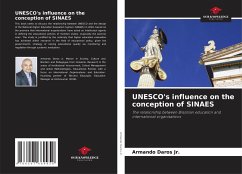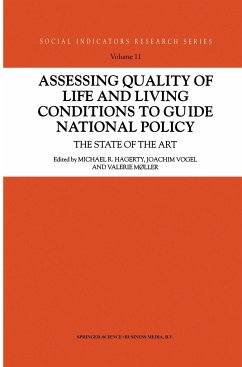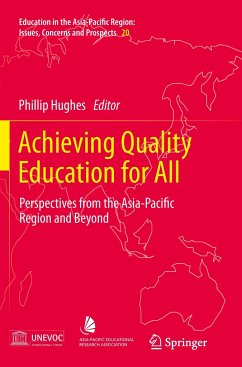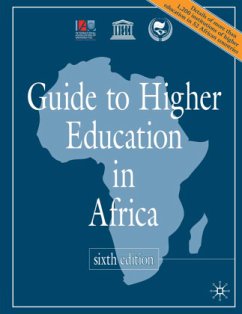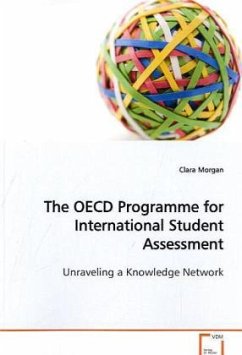
The OECD Programme for International Student Assessment
Unraveling a Knowledge Network
Versandkostenfrei!
Versandfertig in 6-10 Tagen
52,99 €
inkl. MwSt.

PAYBACK Punkte
26 °P sammeln!
The OECD PISA: Unraveling a Knowledge Network tracesthe construction of an international studentassessment by the Organzation for InternationalCo-operation and Development (OECD). The PISA isanalyzed within the context of the globalarchitecture of education where variousagents such as the OECD and other internationalorganizations, states and communities of experts arereconstructing, reproducing and legitimizing thediscourse and material practices of societal andeconomic progress.The book argues that the PISA is a fragile entity. Itis susceptible to contestation not only as it islocated in a hi...
The OECD PISA: Unraveling a Knowledge Network traces
the construction of an international student
assessment by the Organzation for International
Co-operation and Development (OECD). The PISA is
analyzed within the context of the global
architecture of education where various
agents such as the OECD and other international
organizations, states and communities of experts are
reconstructing, reproducing and legitimizing the
discourse and material practices of societal and
economic progress.
The book argues that the PISA is a fragile entity. It
is susceptible to contestation not only as it is
located in a highly politicized setting, the OECD,
but also because it is founded on the
socially-constructed science of educational measurement.
This research work reveals that the
international educational indicators that inform
public policy decision-making are the result of a
series of negotiated compromises made by communities
of practice occupying various institutional
structures within the global architecture of education.
the construction of an international student
assessment by the Organzation for International
Co-operation and Development (OECD). The PISA is
analyzed within the context of the global
architecture of education where various
agents such as the OECD and other international
organizations, states and communities of experts are
reconstructing, reproducing and legitimizing the
discourse and material practices of societal and
economic progress.
The book argues that the PISA is a fragile entity. It
is susceptible to contestation not only as it is
located in a highly politicized setting, the OECD,
but also because it is founded on the
socially-constructed science of educational measurement.
This research work reveals that the
international educational indicators that inform
public policy decision-making are the result of a
series of negotiated compromises made by communities
of practice occupying various institutional
structures within the global architecture of education.



